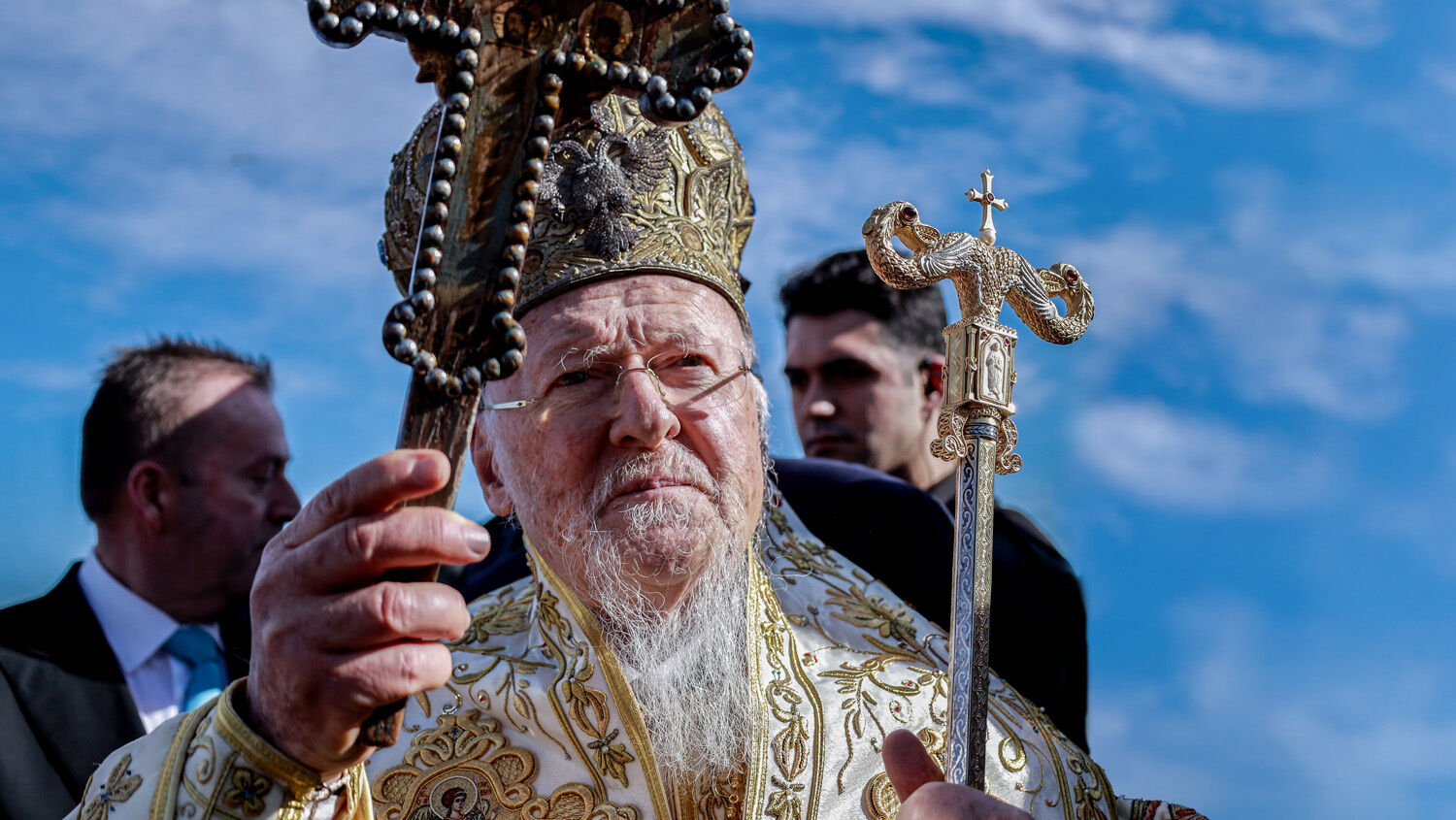
Ecumenical Patriarch Invites Next Pope to Celebrate Nicaea Anniversary With Him
Pope Francis hoped to travel to Turkey to celebrate the 1,700th anniversary of the Council of Nicaea with Orthodox Ecumenical Patriarch Bartholomew of Constantinople. Yet he died one month before this historic milestone. In an emotional statement, Patriarch Bartholomew expressed deep sorrow over Francis’s death, calling him “a precious brother in Christ” and “a true friend of Orthodoxy.”
“It was not meant to be for him to come,” Bartholomew lamented in an official statement before noting that Catholic participation at the 1,700th anniversary will now depend on Francis’s successor.
The papal conclave to pick Francis’s successor will start on May 12 at the latest, so there is a good chance the Catholic Church will have a new pope before the Nicaea commemoration on May 20. If the next pope chooses to keep Francis’s plans for a meeting with Bartholomew in Turkey, it would likely be his first international trip as pope, setting the stage for ecumenical outreach during his pontificate.
Emperor Constantine the Great called the Council of Nicaea on May 20, a.d. 325, to promote religious unity throughout the Roman Empire. After months of debate, an assembly of 318 bishops set a date for Easter, formalized the trinity as Catholic dogma, and recognized three archbishops as having extra-provincial authority (the bishop of Rome, the bishop of Antioch and the bishop of Alexandria).
All Christians who refused to adhere to the Nicaean Creed were exiled.
In the centuries after Nicaea, the bishops of Rome began claiming more authority over the church, eventually leading to the East-West Schism in 1054. Francis and Bartholomew wanted to mend this schism, but were never able to settle the divisive issue of papal primacy, as well as other disputes.
The Vatican published a document on October 26 suggesting the Catholic Church establish a Council of Patriarchs chaired by the bishop of Rome. Such a council would give Eastern Rite churches more say in church government while emphasizing the pope’s role as head of the church. Many Catholics do not like this suggestion, but it may make the Eastern Orthodox more likely to seek communion with Rome.
For over 40 years, the late Plain Truth editor in chief Herbert W. Armstrong forecast that the Roman Catholic Church would pull its Eastern Orthodox daughters under its dominion. “The mighty problem of achieving [Catholic] unity is twofold,” the Plain Truth stated in its November 1963 issue. “First, it involves reconciliation of the Orthodox Schism that officially commenced in 1054 and divided the churches in the East—Greece, Russia, the Balkans and the Near East—from Rome. Second, it involves the restoration to the Roman communion all Protestantism, which developed from 1517 onward.”
This prediction was based on Isaiah 47, which describes a church called “the lady of kingdoms” (verse 5). Yet this church has protesting churches that have split from it. Isaiah states that these churches will be brought under Babylonian control. Will the world soon witness another Nicaean council?
The original Council of Nicaea was designed to create a state-sponsored version of Christianity with the power to stamp out all forms of dissent.
The Catholic Church has signed agreements with Orthodox, Lutheran, Methodist, Anglican and other religious groups in its push to unify the world—and especially Europe—under its control. But all of these agreements would pale in significance compared to an agreement healing the East-West Schism of a.d. 1054. Such an agreement would unify Sunday-keeping churches in a way that has not happened in well over a millennium. Patriarch Bartholomew hopes the new pope will prioritize unity.
For more information, read “Returning to the Fold” in our free booklet He Was Right.
